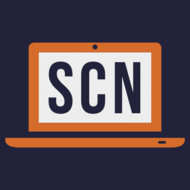Open Pedagogy with Faculty & Students
(View Complete Item Description)Open Pedagogy is a collection of open practices in the classroom made possible by replacing commercial textbooks with open educational resources. These emerging practices enabled by open content licensing (and an open mindset) involve students in making decisions about their own learning experiences and contributing directly to global knowledge to impact not only other students but generate renewable value outside of the classroom. This is a recording of a webinar presented by three faculty members and two students who have participated in open pedagogy projects that were enabled through the adoption of open education resources and open practices. Learn how students working with instructional designers and librarians have begun to help faculty adopt, create and implement open content across their campus.
Material Type: Interactive




















